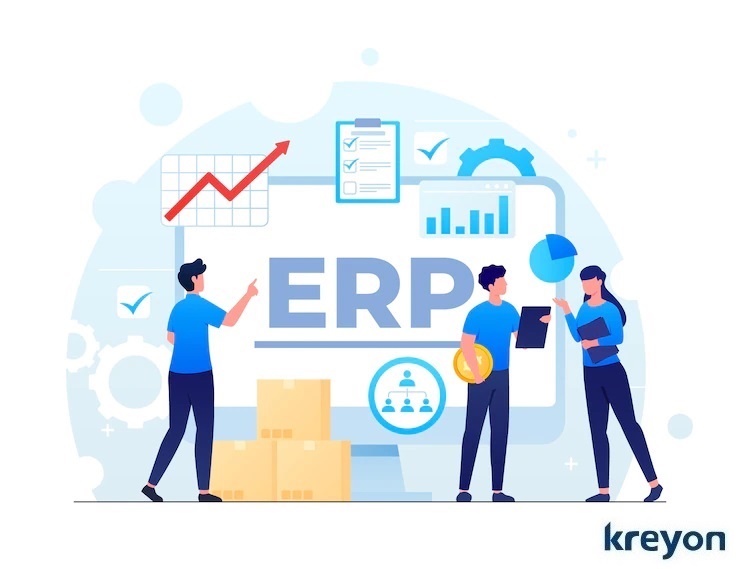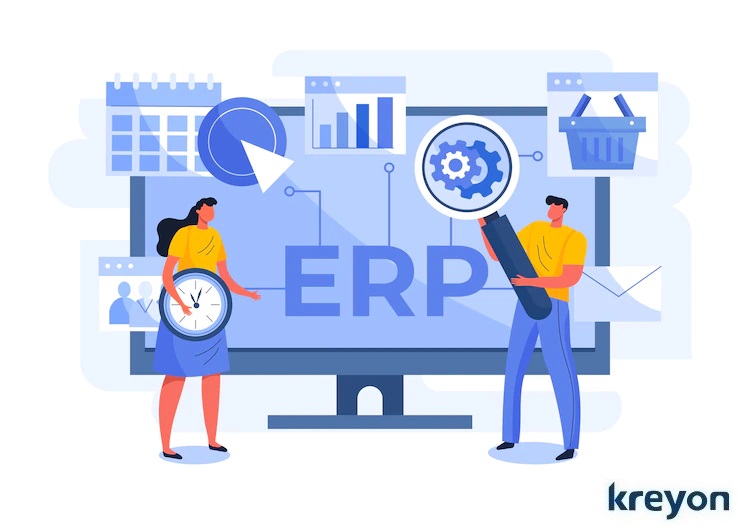How to Choose the Best ERP Implementation Partner for Your Company

The right ERP implementation partner can help your company devise an integrated and strategic solution for improved supply chain, inventory management, accounting, contract management, CRM and all other business functions. The right ERP software can help your organisation unlock value by improving its operational efficiency, reduce bottlenecks, lower costs, and increase the bottomline earnings.
ERP implementation partner has a major role in determining the eventual outcomes of the exercise. The time, resources, implementation time frame, training, onboarding employees and meeting business objectives can vary according to the implementation partner’s expertise.Here’s a look at some of the crucial aspects of choosing the right ERP partner:
1. ERP Implementation Plan
The ERP implementation plan outlines the methodology of the ERP partner. The standards, processes, and implementation roadmap can ease concerns to help you zone into the right vendor.
One of the key requirements for organisations is ERP customisations for their business. Discussing the needs upfront with the vendor can help you understand the timelines for implementation. It also gives you insight into the working of your ERP partner. Typically, the more customisations your business needs, the more time and money your organisation will need to spend.
The ERP partner should specify the execution roadmap and solution capabilities, customisation plan, configuration, data conversions, data loading, testing, staging and production support after the go live phase. The ERP implementation plan must articulate the maintenance, ongoing updates and user training support after the ERP implementation too.
Here is a list of some questions you need to discuss with your potential partner for the ERP implementation:
Is your ERP vendor experienced in implementing ERP software in your industry?
How does your vendor support customisations?
How will the ERP improve your company efficiencies, communications, income, accounting and other key business areas?
How long will the data migration take? Who will be responsible for data cleanup and loading?
What will be the roles and responsibilities of your team and ERP implementation partner?
What will be the deployment mode for the ERP, on premise or cloud? Does your organisation need any key functionality to be available on-premise or offline? Can your vendor support this?
What are your requirements around servers or network etc?
What are the key integrations with other systems?
What will be the data security standards, checks, balances and alerts?
Does your organisation conduct a business process review before ERP implementation?
Can you specify your implementation roadmap, testing, user acceptance, and training guidelines?
What project management methodologies will be adopted for ERP implementation?
By discussing some of the above aspects, your organisation can get a glimpse into the ERP implementation process of the vendors.
2. Proprietary or Third Party ERP

ERP solution providers often provide integrations and implementation services on a third party ERP. For e.g. the ERP vendor could use Microsoft Dynamics or SAP and provide the integrations or customisations needed for the company. In this case, they will be relying on third party ERP. There are some ERP partners who provide end to end implementation using their own ERP software.
The implementation company should be well versed with your business and meet the needs of your company. The implementation partner should be able to develop ERP as per your choice. The best ERP partners understand the core needs of the business and adopt the best practices for meeting them.
The ERP implementation partner with the ability to develop customised applications for your business needs with clear timelines and specific milestones is often the right team. The customised applications and leveraging the ERP for your changing business needs equips your team to face the future with a data driven approach.
3. Business Issues
The implementation consultant and partner should understand the specific needs of the business. They should understand the levers for unlocking business value and streamline operations. A look at some of the questions for helping you evaluate your ERP partner.
How will your ERP solution help us generate more revenue?
How will your ERP help us resolve [Specific Business Problem]?
How will your ERP help us imp[rove communication and teamwork?
How will the ERP enable our team to make data driven decisions with agility?
Will your ERP implementation help us with compliance and regulatory reporting?
What specific business functions will be improved or enhanced after ERP implementation?
The ERP implementation should lead to review of your existing business processes. These processes can then be streamlined with automated workflows in your ERP software. The idea is to adopt the best practices across industries and use technology to make your organisation solve its existing challenges.
4. Measuring ERP Success

Before you finalise the ERP implementation partner, you need to define how your company will measure ERP success. Your organisation must have clear goals and agenda for the ERP software. Your vendor must be able to understand the metrics, business functions and outcomes you want to achieve from your ERP implementation.
You should also specify the timeline for measuring these metrics. Some of these metrics could be:
Supply chain time for building your products
Your organisational KPIs for performance evaluation
Production schedules and timelines
Strategic benefits
Employee engagement scores
Employee productivity and performance
Sales and earnings improvements
Inventory carrying costs
Intangible benefits like communication and teamwork
Customer metrics
Integrations and data aggregations for realtime reporting
Your vendor and your company should be on the same page with respect to the ERP deliverables and timelines. The ERP program delivery should be in line with your stated business metrics and objectives.
ERP implementation typically targets cutting down inventory carrying costs, reducing order time for customers, improving customer lifetime values, increasing sales, earnings, reducing operational errors etc. for an organisation.
5. Pricing Approach & Timelines
Before you finalise your ERP implementation partner, your company needs to ensure pricing and timelines for the implementation are transparent. A vendor needs to provide firm commitments on the deliverables and spell out things with clarity.
Your organisation can evaluate the existing ERP products and their capabilities. Once your functional requirements fit the existing solutions, your company can then take a call on the customisations needed for the implementation.
The more customisations your company needs, the more time and costs will be incurred on ERP implementation. The solution that best fits your business processes, and company needs with fewer customisations & quick implementation could be chosen.
The vendors can specify the scope, time and pricing for the customisations. The deliverables and timelines need to be mapped with an acceptance criterion agreeable to both parties. In complex implementations, data needs to be uploaded to audit internal processes before the ERP goes into the production mode.
The right ERP implementation partner can help your company save time, money and resources. A good ERP solution will equip your organisation to have a more productive workforce with high operational efficiency and processes to run your business better with a 360 degree understanding.
Kreyon Systems provides custom ERP implementation for enterprise clients. Our in-depth ERP implementation expertise has been leveraged by governments and corporates. If you have any queries, please reach out to us.
